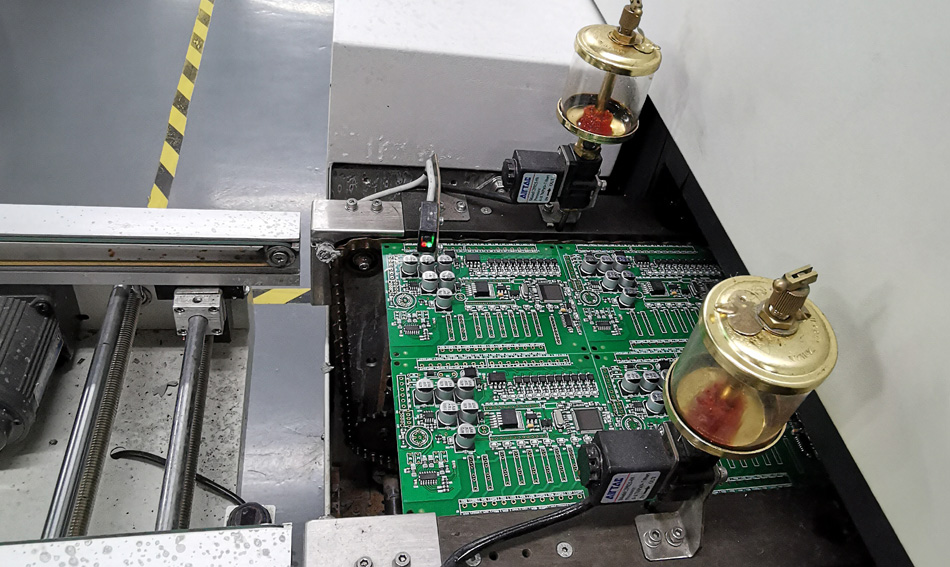- English
- Español
- Português
- русский
- Français
- 日本語
- Deutsch
- tiếng Việt
- Italiano
- Nederlands
- ภาษาไทย
- Polski
- 한국어
- Svenska
- magyar
- Malay
- বাংলা ভাষার
- Dansk
- Suomi
- हिन्दी
- Pilipino
- Türkçe
- Gaeilge
- العربية
- Indonesia
- Norsk
- تمل
- český
- ελληνικά
- український
- Javanese
- فارسی
- தமிழ்
- తెలుగు
- नेपाली
- Burmese
- български
- ລາວ
- Latine
- Қазақша
- Euskal
- Azərbaycan
- Slovenský jazyk
- Македонски
- Lietuvos
- Eesti Keel
- Română
- Slovenski
- मराठी
- Srpski језик
How do PCBA factory waste management and recycling measures affect compliance?
With the increase of global environmental awareness, PCBA (printed circuit board assembly) factory waste management and recycling measures have become a key factor in industry compliance. Waste management not only involves environmental protection, but also whether the factory can comply with strict regulatory requirements. Therefore, it is particularly important to understand the compliance requirements of waste management and its impact on PCBA processing companies. This article will explore how PCBA factories can ensure compliance through waste management and recycling measures.

1. Regulatory requirements for waste management
During the PCBA processing process, there are various types and quantities of waste, including hazardous chemicals, electronic waste, waste gas, wastewater, etc. If these wastes are not handled properly, they may cause serious harm to the environment and human health. Therefore, many countries and regions have strict regulatory requirements for waste management in the electronics manufacturing industry, such as Europe's Waste Electrical and Electronic Equipment Directive (WEEE) and the Restriction of the Use of Certain Hazardous Substances Directive (RoHS).
For PCBA factories, compliance with these regulations is crucial. Factories need to ensure that waste treatment complies with relevant legal requirements and implement effective recycling and reuse measures. For example, the waste treatment process must be regularly monitored and recorded to ensure that the emission of hazardous substances is within the prescribed limits. Compliance not only helps reduce environmental risks, but also avoids penalties such as fines or production shutdowns due to violations.
2. Waste classification and treatment
During the PCBA processing process, different types of waste need to be classified and treated in a specific way. This is the basis for ensuring that the factory complies with environmental regulations. Common types of waste include:
Chemical waste: such as chemicals and cleaning agents used in the soldering process, these substances may contain harmful components and require special treatment.
Electronic waste: such as discarded electronic components, damaged circuit boards, etc., usually need to be recycled through special channels.
Solid waste: including waste generated during the production process and waste packaging materials.
PCBA factories need to clearly classify each type of waste and choose appropriate treatment methods according to the nature of the waste. In the waste treatment process, the factory should follow the principle of "reduce, reuse, and recycle" to minimize waste generation and improve resource utilization. In addition, the factory should also ensure that the storage, transportation and disposal of waste meet local environmental protection requirements.
3. Implementation of recycling measures
Recycling measures are an important part of waste management. Through effective recycling, PCBA factories can not only reduce the accumulation of waste, but also convert some waste into reusable resources, thereby reducing production costs and reducing negative impacts on the environment.
PCBA factories can improve recycling efficiency in the following ways:
Waste reuse: For example, the discarded circuit boards generated during the production process are recycled to extract valuable metal elements (such as copper, silver, etc.) for subsequent production.
Soldering material recycling: For used soldering materials, they can be recycled and reprocessed to reduce the use of new materials.
Electronic component recycling: Damaged or expired electronic components should be recycled in a timely manner to avoid random discarding and environmental pollution.
Through recycling, PCBA factories can significantly reduce the risk of environmental pollution and make waste treatment more economical and efficient, in line with the goal of environmental protection.
4. Impact of waste management on compliance
The compliance of waste management measures directly affects the operation of PCBA factories. Compliant waste management not only ensures that the factory complies with local laws and regulations, but also enhances customer trust in the company and enhances the company's market competitiveness. Specifically, the impact of waste management and recycling measures on compliance is reflected in the following aspects:
Reduce legal risks: Effective waste management can help factories avoid legal proceedings or fines for improper waste disposal.
Improve environmental ratings: Many companies and customers consider their environmental behavior when choosing partners. Good waste management measures can help improve the factory's environmental rating and attract more customers.
Improve corporate image: Implementing green production and waste recycling not only meets environmental protection requirements, but also demonstrates the company's social responsibility and improves its brand image.
5. Support from factory employees and management systems
The effectiveness of waste management is inseparable from the active participation of employees and the support of the factory management system. Factories should regularly conduct environmental training for employees to ensure that every employee understands the requirements of waste management and implements them as required. At the same time, factories should also establish a sound waste management system and process to ensure that waste management is carried out in an orderly manner.
In addition, factories can further improve the transparency and compliance of waste management through external audits, third-party certification, etc., to ensure that each measure can be effectively implemented.
Conclusion
Waste management and recycling measures play a vital role in the compliance of PCBA factories. Factories not only need to comply with environmental regulations, but also actively take effective waste treatment and recycling measures to reduce the impact of waste on the environment. By optimizing waste management, PCBA factories can not only improve compliance, but also improve resource utilization efficiency, reduce production costs, and lay a solid foundation for sustainable development.
Send Inquiry
-
Delivery Service






-
Payment Options









